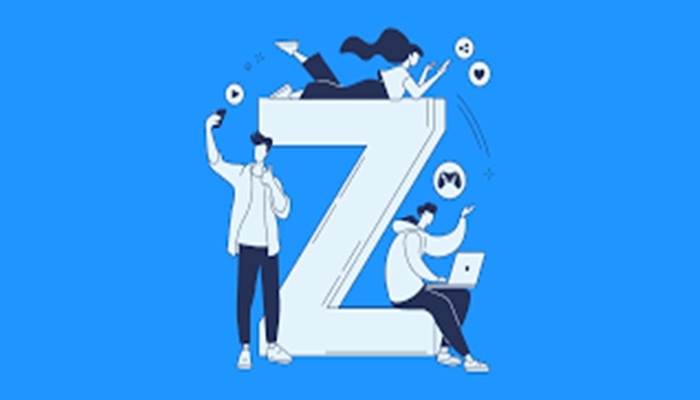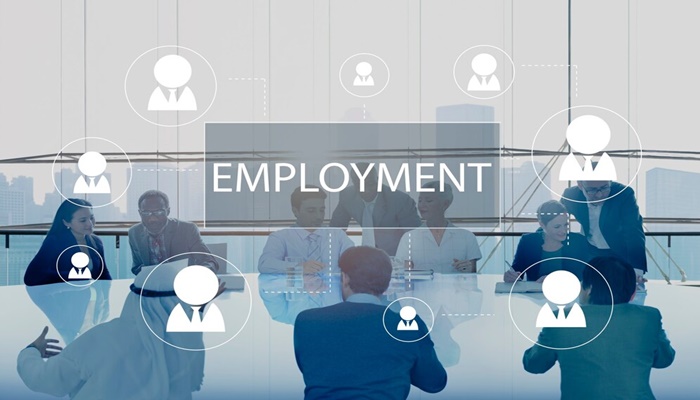The Hiring Revolution: How AI is Redefining Recruitment
The world is on the verge of a seismic shift in how talent is hired, one that will redefine the fabric of work itself. Artificial Intelligence is no longer just a tool in recruitment—it is the architect of a future where hiring could be fully automated, with massively more reach, and free from human bias. What was once the domain of recruiters is now being rapidly overtaken by machine learning, natural language processing, and predictive analytics.
Companies at the forefront of this revolution are already leveraging AI to streamline hiring and onboarding, accelerating decision-making and optimizing workforce planning at a scale never before possible.
A recent survey by Gallup revealed that 93% of Fortune 500 Chief Human Resource Officers (CHROs) have begun integrating AI tools and technologies to enhance business practices. This widespread adoption underscores AI’s transformative potential in reshaping traditional HR functions. To get underneath this trend and explore its boundaries my research associate, Wendy Smith, and I have interviewed dozens of AI entrepreneurs, CHROs and CIOs to understand where certain core aspects of HR are evolving with AI and we have come to the conclusion that it’s more significant and faster than most imagine.
But this is just the beginning. The trajectory is clear: AI is not merely assisting recruiters—it is replacing them. A world where talent is sourced, evaluated, and onboarded without human involvement is not science fiction. It is not a question of if this transformation will happen, but how quickly businesses will adapt to an era where AI doesn’t just support hiring—it is hiring.
AI’s Takeover of Talent Acquisition
For decades, hiring has been a labor-intensive, human-driven process—recruiters sifting through resumes, conducting interviews, and making judgment calls based on intuition and experience. But the era of manual talent acquisition is fading. AI is rapidly evolving beyond a supporting role to become the driving force behind recruitment, transforming every stage of the process into an intelligent, automated system.
Imagine a world where job descriptions write themselves, dynamically tailored to attract the best-fit candidates based on real-time market data. AI-powered platforms scour global talent pools, identifying and engaging top prospects before they even start job hunting. Instead of recruiters poring over applications, machine learning algorithms instantly analyze skills, experience, and behavioral patterns to determine the perfect match—without bias, inefficiency, or delay.
Interviews? Conducted by AI-driven virtual assistants capable of assessing verbal and non-verbal cues with pinpoint accuracy. Candidate evaluations? Powered by predictive analytics, forecasting long-term performance and cultural fit with greater precision than any hiring manager ever could. Offer negotiations, onboarding, and even personalized career pathing? All seamlessly handled by AI, ensuring that every new hire is set up for success from day one.
This isn’t just automation—it’s a paradigm shift. AI is dismantling the inefficiencies of traditional hiring and replacing them with a recruitment ecosystem that is faster, smarter, and entirely data-driven.
Key Components of a Fully Automated Recruitment System
- AI-Enhanced Employer Branding: AI-powered tools can analyze online data, social media, and candidate feedback to optimize employer branding strategies and content.
- Workforce Analytics and Planning: AI can analyze vast amounts of workforce data to predict future hiring needs, identify skills gaps, and optimize talent allocation, enabling proactive and strategic workforce planning.
- Autonomous Job Creation & Posting: AI can analyze market trends and company workforce needs to generate job descriptions and automatically post them to relevant platforms to ensure they are shared with the right people, at the right time, at the best possible price.
- AI-Driven Candidate Sourcing & Matching: Advanced AI tools can scan millions of resumes, online profiles, and employment histories in real-time, identifying ideal candidates based on job requirements and company profiles.
- Internal Talent Identification and Backfill Recommendations: AI algorithms can scan internal talent marketplaces, employee profiles, and project data to identify suitable internal candidates for open positions and proactively suggest backfills for roles vacated by internal promotions, reducing time-to-fill and promoting internal mobility.
- Algorithmic Candidate Assessment & Ranking: AI-driven psychometric and skills assessments, combined with natural language processing (NLP) for resume analysis, allow AI to rank and filter top candidates without human bias.
- Interview Scheduling: AI-powered tools efficiently handle scheduling logistics, eliminating time-consuming, administrative work.
- Interview Prep: AI can help prepare candidates for upcoming interviews through interactive role plays. Using natural language processing (NLP) and machine learning, AI can evaluate tone, confidence, and clarity, offering coaching suggestions before the real interview.
- AI-Powered Video Interviews: Facial recognition and voice analysis algorithms can evaluate candidates’ responses, tone, and emotional intelligence, scoring them against predefined success metrics.
- Automated Offer Generation & Negotiation: AI can tailor salary and benefits packages based on industry benchmarks, candidate expectations, and company budget constraints.
- End-to-End Compliance & Bias Mitigation: Ethical AI frameworks can continuously analyze and adjust hiring algorithms to ensure compliance with labor laws and eliminate bias in candidate selection.
There are a number of HR technology platforms at the forefront of the AI-powered recruitment revolution, equipping companies with the tools to transform talent acquisition.
For example, Workday has introduced AI agents designed to streamline HR processes. Notably, its Recruiting Agent automates hiring tasks across the Workday platform, proactively sourcing passive candidates, automating outreach, and recommending top talent for open roles. According to Aashna Kircher, Workday’s Group General Manager, CHRO Products, early implementations of this AI-driven approach have increased recruiter capacity by 54% on average, underscoring the efficiency gains AI can deliver.
Eightfold’s Talent Intelligence Platform leverages deep-learning algorithms to analyze vast datasets to infer skills that may not be explicitly listed on a candidate’s resume but are commonly associated with certain roles or industries. For instance, a candidate from a high-growth tech startup may have expertise in agile methodologies or rapid scaling, even if not explicitly mentioned. By leveraging predictive analytics, Eightfold matches candidates with roles based on both their stated qualifications and inferred competencies, ensuring a more holistic and accurate fit between talent and job requirements.
Mantrika is an emerging player in the AI-driven talent acquisition landscape. Mantrika’s AI-driven platform is designed to fundamentally shift the recruitment landscape by automating tasks traditionally handled by recruiters. From sourcing candidates to screening resumes and scheduling interviews, Mantrika eliminates manual bottlenecks, enabling faster and more precise hiring decisions. Its AI models predict candidate success and job performance, reducing reliance on human judgment and streamlining the selection process. By removing the need for recruiter-led evaluations and administrative tasks, Mantrika is paving the way for a recruiterless hiring model—where companies can efficiently match talent to roles with minimal human intervention.
In high-volume hiring, Fountain’s AI hiring assistant screens and evaluates frontline workers. Sean Behr, CEO of Fountain, is optimistic about the shift: “The AI agent is designed to figure out if you’re a good fit for the job, and frankly, I think it does a better job than humans. It does it faster and more effectively, and it does it in a bias-free way.” Fountain’s AI interviewer automates the entire hiring process, providing structured, objective feedback on each candidate. A major advantage? AI-driven interviews allow candidates to engage in their native language, eliminating previous resource constraints that required companies to hire multilingual interviewers. This enhances candidate experience, ensures fairer evaluations, and enables organizations to scale hiring without increasing costs.
Signs of Change
Early research to verify AI’s ability to recruit more effectively than humans with regards to efficiency and objectivity have been promising. A study conducted in 2022 by The Inclusion Initiative showed: “That AI hiring improves efficiency in hiring by being faster, increasing the fill-rate for open positions, and recommending candidates with a greater likelihood of being hired after an interview. Their review demonstrates that while AI had limited abilities in predicting employee outcomes after being hired, it was a substantial improvement over humans. The authors also assessed whether AI could decrease biased decision-making and improve the diversity of selected candidates. Overall, AI hiring resulted in more diverse outcomes than human hiring.”
Major brands that are implementing HR AI tech for hiring are already seeing the impact. Chipotle Mexican Grill recently deployed an AI assistant, ‘Ava Cado,’ to accelerate hiring for 20,000 seasonal roles. The results? Application completion rates surged from 50% to 85%, and the hiring timeline shrank from 12 days to just 4—keeping restaurants fully staffed during peak demand.
Similarly, Unilever has embraced AI-driven hiring, using AI-powered assessments and video analysis to streamline its recruitment process. Candidates engage in online games that evaluate traits like risk-taking and adaptability, while AI analyzes body language and word choice in video interviews. This approach has dramatically reduced hiring time while improving candidate satisfaction.
As AI continues to redefine talent acquisition, organizations that embrace these innovations will gain a competitive edge in securing top talent, reducing bias, and optimizing hiring efficiency. The future of recruitment isn’t just digital—it’s intelligent, adaptive, and profoundly transformative.
Smart Offers, Smarter Hiring
AI will also play a significantly larger role in refining employment offers, going beyond just salary recommendations.
- Real-Time Offer Optimization: AI can predict offer acceptance likelihood and dynamically adjust terms to maximize candidate interest.
- Automated Offer Negotiations: Conversational AI tools can engage candidates in real-time negotiations, considering both company constraints and market conditions.
- Virtual Contracts & Immediate Hiring Decisions: Smart contracts powered by blockchain can enable immediate hiring, with employment agreements generated and signed without human intervention.
Originally known for automating procurement negotiations, Pactum extended its AI capabilities to internal compensation discussions. The company developed an AI chatbot designed to negotiate compensation packages with employees. This chatbot presents multiple equivalent simultaneous offers (MESOs), allowing employees to choose from various tailored compensation options. This approach not only streamlines the negotiation process but also addresses potential biases, promoting equitable outcomes. Feedback from employees has been positive, highlighting the chatbot’s role in achieving gender-balanced compensation and offering diverse benefit choices beyond salary, such as additional vacation or equity.
Better Beginnings
Once hired, AI can ensure that onboarding is seamless and fully digital making it a much better experience for new hires:
- Pre-Start Immersive Experiences: Virtual reality (VR) and AI can offer new hires an interactive preview of their workplace, including office tours, team introductions, work simulations, and company culture immersion before their first day.
- Onboarding Scheduling: An AI-driven assistant can organize onboarding tasks into a personalized schedule, prioritizing activities to ensure a smooth transition.
- New Hire Administration: A digital AI assistant can ensure all onboarding paperwork is completed seamlessly, guiding the new hire through tax forms, benefits selection, and direct deposit setup. By analyzing demographic data and lifestyle preferences, the AI can even suggest the most suitable healthcare plans, retirement contributions, and other benefits options.
- AI-Driven People Matching and Introductions: AI can identify and facilitate connections between new hires and existing employees based on their role, shared skills, interests, and experience, accelerating integration.
- New Hire Engagement: AI tools can assess employee sentiment during onboarding, flagging potential issues and prompting managerial intervention when necessary.
- Virtual AI-Generated Mentors: AI-driven digital mentors can provide real-time guidance, training, and integration support, reducing dependency on human trainers.
- Performance Prediction & Adaptive Learning: AI can track early employee performance and provide coaching and adjustments to personalized training programs dynamically to optimize individual success.
- Network Integration: AI can identify connections between new hires and existing employees based on educational background, work history, and interests, fostering early engagement and integration.
My former software firm, Pocket Coach, demonstrated years ago how technology can improve time to productivity through better onboarding. The key measure was speed to quota for the sales team. New hires received an automated checklist via text; our research had mapped out six months of things the new candidate needed to do, know and feel. On the first day, the app would direct the individual where they needed to be to pick up their badge and meet the team. At the end of their first week, the app would check in, asking: “Do you feel like you belong here?” The response to this question would trigger the manger to have a conversation with the new associate. And, regular texts about their knowledge of the product they were selling would lead to personalized interventions, like sharing learning modules or again notifying their manager if answers indicated the new hire needed coaching. A major telecommunications company that utilized Pocket Coach saw a 75% reduction in speed to quota, and this was pre-AI enablement. Imagine what is now in store for us.
Ethical Considerations: Can We Trust Machines to Hire?
A fully AI-driven hiring process offers undeniable advantages—speed, efficiency, scalability—but it also demands thoughtful planning. These aren’t dealbreakers; they’re opportunities to refine and strengthen AI’s role in hiring:
- Bias & Fairness: AI is only as good as the data it’s trained on. Continuous monitoring and refinement are essential to ensure it enhances, rather than perpetuates, fair hiring practices. Using techniques like red teaming can help with testing AI to mitigate risks of bias.
- Data Privacy & Security: AI-driven recruitment involves handling sensitive candidate data, making robust cybersecurity and compliance measures non-negotiable.
- Human Oversight & Accountability: AI can make hiring faster and more objective, but organizations must establish clear ethical guidelines on when human intervention is needed.
Companies that embrace AI must also stay ahead of an evolving regulatory landscape. From GDPR to emerging state laws restricting automated hiring decisions, compliance is becoming as critical as efficiency. As Glen Cathey, SVP, Consulting Principal at Randstad Enterprise emphasizes: “As we embrace AI in recruiting, we must also navigate the rapidly evolving regulatory landscape that can serve to restrict automated decision-making in hiring, from GDPR to emerging state laws. A thoughtful human-in-the-loop approach isn’t just good practice, it’s becoming a compliance requirement.”
These considerations are not barriers—they are stepping stones. As AI continues to evolve, it will not only address these challenges but will likely prove more equitable than human-driven hiring by removing unconscious biases and applying objective, data-driven decision-making at scale.
As Trey Causey, Senior Director of Responsible Technology at Indeed, stresses: “Responsible AI use doesn’t mean avoiding AI — it’s about balancing risks and opportunities. The real danger lies in either ignoring AI or adopting it recklessly — both diminish your ability to do your job effectively.”
Are You Ready for AI-Led Hiring?
The future of recruitment is not just evolving—it is undergoing a radical transformation. AI is no longer a supporting player; it is rewriting the rules of talent acquisition, dismantling inefficiencies, and unlocking a hiring process that is faster, smarter, and more precise than ever before.
This revolution isn’t just for companies—it’s for candidates too. In this AI-powered era, job seekers will no longer be at the mercy of outdated hiring systems and unconscious biases. AI will act as their career strategist, identifying ideal roles, refining resumes in real time, and even coaching them through the interview process. Instead of being lost in a sea of applications, the best candidates will rise to the top—recognized not for who they know, but for what they can truly bring to the table.
Companies that embrace this shift now won’t just gain an edge—they will redefine the entire nature of work itself. The talent wars of the past will be won by those who wield AI to attract, assess, and onboard with precision at an unprecedented scale. This is more than automation. This is the dawn of an intelligent hiring revolution, where human potential is matched with opportunity in ways never before imagined. The future of recruitment isn’t just AI-assisted—it is AI-driven. And it’s already here.




















